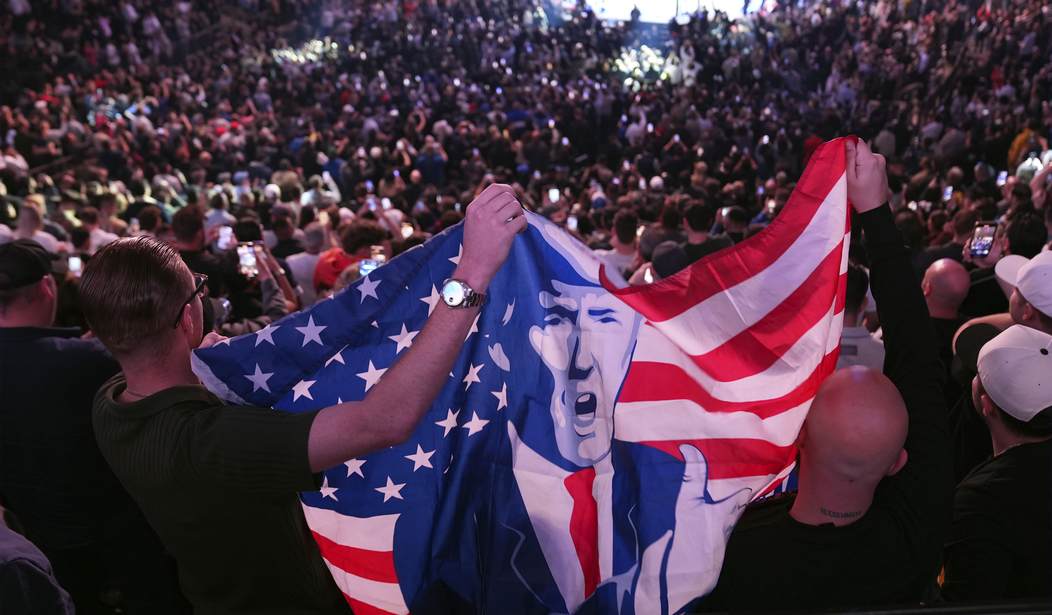When I wrote the Morning Briefing last week while my friend and colleague Stephen Kruiser took a much-needed day off, I mentioned that I was listening to the audiobook of Boris Johnson’s memoir “Unleashed.” One section of the book where he discussed the 2016 Brexit vote struck me.
He began by talking about how he had been traveling the day of the vote and had to scramble home to vote before the polls closed. Everyone was bracing themselves for a Remain victory, but things began to change as the night wore on.
The polls were wrong. The bookmakers were wrong. The markets were wrong. Even Nigel Farage, the leader of an unofficial and unconnected campaign called Leave UK, was wrong. He, for some reason, had conceded defeat earlier in the evening on the basis of some rumor that swept the city.
It turned out that there was a pool of people, a vast pool, who had been touched by the debate in a way that they were never touched, never touched by normal politics. How often in the years that I was writing editorials for the Daily Telegraph had I quoted those old lines of G.K. Chesterton:
Smile at us, pay us, pass us; but do not quite forget;
For we are the people of England, that never have spoken yet.…They were the voices of people who felt excluded from the current consensus, who genuinely wanted change, a government that would properly heed them and their interests.
Outside of a few Anglo-specific references, Johnson could easily have been discussing the 2024 election in the U.S. Voters turned out for Donald Trump in numbers that surprised just about every expert and pundit, and Trump’s voters were those who “felt excluded from the current consensus, who genuinely wanted change, a government that would properly heed them and their interests.”
Trump managed to cobble together a coalition of those whom the last four years frustrated. The Democrats’ lurch to the left and desire to placate small pockets of radicals disaffected plenty of people who turned out to vote for Trump and the GOP.
The Associated Press pointed out how both candidates sought to mobilize people who might not have otherwise voted to turn up. That strategy paid off for Trump in huge numbers.
“The Harris campaign did a pretty good job getting voters out who wouldn’t have come out,” said Tom Bonier, a Democratic data analyst. “She did get her voters out. Trump got more.”
Those Trump turnout victories included first-time voter Jasmine Perez, 26, who voted for Trump at the Las Vegas Raiders stadium.
“I’m a Christian and he really aligns with a lot of my values as a Christian in America, and I like that he openly promotes Christianity in America,” Perez said.
Voting alongside her was Diego Zubek, 27, who voted for Trump in 2016 but didn’t vote in 2020 because he figured Trump would win easily. He voted for Trump this year.
“I wasn’t going to let that happen again,” Zubek said.
My 19-year-old niece was one of those first-time voters who enthusiastically supported Trump. When I asked her what she thought about voting for the first time in a general election, she said, “When Trump lost in 2020, I was hoping he would run again so I could vote for him.”
Recommended: The Weird Similarities — and Differences — Between the U.S. and UK Elections
Trump turned out minorities in surprising numbers. A message about fixing the economy resonated with voters, as did cracking down on illegal immigration. Black voters, Hispanic voters, and even Native Americans turned out to vote for Trump as a result.
“Trump increased his share of young Black men — something that helped cut into a key Democratic voting group,” AP reports. “About 3 in 10 Black men under the age of 45 went for Trump, roughly double the share he got in 2020. Young Latinos — particularly young Latino men — were more open to Trump than they were in 2020. Roughly half of Latino men under 45 voted for Harris, down from about 6 in 10 who went for Biden.”
Rural voters made their voices heard as well. Tired of the “big city problems” that spread throughout the country, rural voters turned out largely in support of Trump. Voters without college educations, whom I firmly believe the mainstream press reports on dismissively, voted for the interests that matter most to them, instead of the issues that the elite says should matter.
In 2024, voters soured on the Biden-Harris administration. They were fed up with the media force-feeding a great economy that didn’t reflect in people’s paychecks or spending patterns. They were tired of an administration that denied biological reality to placate a tiny minority of the deluded. They had had it with bureaucrats telling them what to drive, how to heat their homes, and how to cook their food. And they showed up at the polls.
To paraphrase Chesterton (forgive me, please, sir), the 2024 election was Americans standing up to say, “Smile at us, pay us, pass us; but do not quite forget; / For we are the people of America, that never have spoken yet.” We can only hope and pray that this new coalition holds together in 2026, 2028, and beyond.










Join the conversation as a VIP Member